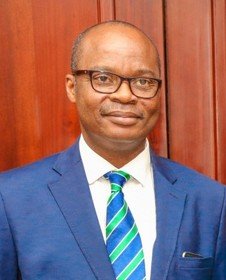I have always been afraid of banks– Andrew Jackson
Proponents of well capitalized banks for aggressive economic growth couldn’t have been happier about the two actions taken by the Bank of Ghana (BoG) within almost 30 days of each other –withdrawal of banking licenses for UT and Capital banks, and announcement of a GH¢400m minimum capital increment for all banks with a December, 2018 deadline.
Unsurprisingly, one of the biggest praises came from the International Monetary Fund (IMF), an institution that has been calling for the strengthening of the banking sector for the past three years, which noted that the swiftness with which the BoG dealt with the two overexposed banks was needed to rescue the country’s fragile banking system.
“Directors commended the progress made in the strengthening of the banking system, in particular through the approval of time-bound recapitalization plans for undercapitalized banks and the recent resolution of two insolvent banks,” it said in a statement shortly after the completion of the fourth review of the ongoing IMF programme. But not everyone was amused by the collapse of the two banks and the recent stated capital increment.
Former President of the Association of Ghana Industries (AGI) and CEO of Tropical Cables Limited, Tony Oteng Gyasi, noted that not all businesses that have liquidity challenges should be collapsed.
“I don’t think it is right for us to be rather killing our businesses; there must be some kind of protection which can help us get businesses running. The whole end game is to put the company back into business but not to have a terminal end,” the seasoned business leader and entrepreneur, said.
The minority in Parliament also called for a comprehensive a bi-partisan probe into the circumstances surrounding the collapse of two indigenous banks, suspecting that something untoward may have happened and demanded investigations into it.
EFFECT OF UT & CAPITAL BANK ON INDUSTRY
Despite the smooth takeover of the two banks by GCB Bank, the largest indigenous player in the industry, the repercussions have and continue to be many. A month after the takeover, shareholders of GCB signaled their unhappiness towards the deal which led to a fall in the price of the bank’s shares on the Ghana Stock Exchange (GSE).
Since the takeover announcement on 14th August, the bank’s shares, which trades on the local bourse under the moniker ‘GCB’ and was on a bullish run all year, took a turn south and has dropped by 12.5percent from GH¢5.14 to GH¢4.50, as at 13th September.
What this means is that if you bought, for example, GH¢10,000 worth of GCB Bank shares at GH¢5.14 on the day of the takeover, it is now valued or can be sold at GH¢8,750, which means you lose GH¢1,250 at the time of selling. As 25th September, the share price has continued to fall and was trading at GH¢4.19.
But if well handled and the liabilities of these two banks are well taken care of by either GCB or the government, GCB will come out as the biggest winner. The bank, moving forward, will be viewed as a stronger and stable financial institution and in terms of the size of its balance sheet, it will beat Ecobank to the first position.
With wide international acclaim from the likes of the IMF, the Central Bank feels empowered to root out recalcitrant banks and other financial institutions and will be in no mood to offer banks that fail to meet regulatory guidelines room to maneuver.
Apart from gaining credence in the eyes of international institutions, this action has boosted the image of the Bank of Ghana in the eyes of the public as a powerful institution.
The image boost is good for the Central Bank because its supervisory authority came under scrutiny when nonbank financial institutions including DKM Microfinance, God Is Love Fun Club and others in the microfinance sector collapsed under the watchful eyes of the BoG which led to depositors losing their savings and the public questioning the regulator’s capacity and relevance.
The liquidation of the two banks will also set boards of various banks thinking and may impact transactions going forward. Both board and management will now religiously obey rules and regulations and comply with directives from the BoG.
The power of GH¢400m to show by December, 2018
By December, 2018, all banks are expected to meet the new minimum capital requirement set by the Central Bank. The Bank of Ghana increased the capital requirement of banks from GH¢120 million to GH¢400million in September 2017.
Right after the announcement, some, especially the foreign players, welcome it wholeheartedly, while the local players grumbled and complained about being too steep and do not take into account their role in helping Small and Medium Enterprises (SMEs).

With the Central Bank Governor, Dr. Ernest Addison, stressing the need for the banks to meet the requirements and should not expect any leniency, whether local or foreign, the banks have already began taking steps to meet the requirement.
Already, the Finance Minister, Ken Ofori- Atta, has supported the call for the need for just about five strong local banks to support government’s agenda in developing the economy through aggressive industrialization and infrastructural development.
Commenting on the proposed increment of the minimum capital requirement, Executive Secretary of the Ghana Association of Bankers, Daniel K. Mensah also said if the outcome of some of the current fundraising activities undertaken by some banks in the country is anything to go by, there is a strong indication that banks will struggle to raise additional capital, especially the locally owned banks.
This points to an obvious mergers and acquisitions scenario among the local players, especially. Dr. Addison has confirmed the Central Bank has received some proposals from banks pushing for mergers and takeovers, following the announcement of the new capital requirement.
Pointing out that after a careful examination of the assets of banks in the country, it clearly shows that some may not meet the requirement; hence mergers and takeover will be the appropriate move.
“We should expect some consolidation soon in the banking industry. We have received a few proposals for mergers and takeovers. But we want these consolidations to be market- driven. As we go along we will help them and guide them in terms of how these mergers are done.
You could have a big bank deciding to take a small bank, or a small banks merging to be become a big bank. Or we could have designate anchor banks so that the small banks try to merge with the anchor banks. There are many models. We want the process to be market driven,” he stressed.
There are two or possibly three outcomes here. First, by December, 2018, the economy could have fewer banks than it has now. Despite the abrupt removal of two local banks, the actions of the Central Bank and the government are pointing to further reduction of the numbers from 34.
At the end of the day, Ghana, which already has more foreign banks in terms of asset base and profitability, could have fewer banks when it comes to the actual numbers and leave the field solely in the hands of foreign players, just like the mining and telecommunications, a situation local content activists have been advocating against.
For an economy that needs larger capital for aggressive infrastructural development and industrialization, the new minimum capital requirement is welcoming news. This means businesses in the country in need of big loans can now access such facilities from one or, at most, two banks whereas big loans used to be accessed from more than four to five banks.
Credit facilities for oil and gas, construction, factory establishment, air and seaport expansions, and other infrastructural developments that businesses and quasi government institutions have to step out for will now be accessed locally.
Lastly, local players are of the view that such sharp increment, intended to reduce the numbers, could lead to excessive capital in the system, which could have major negative impact on the economy and drive up non performing loans and even collapse some banks. An analyst explained that with negative and very low interest rates in the developed economies, seeking support from global financial institutions would not be difficult.
This means that all 34 banks will meet the minimum capital requirement and with GH¢400million, these banks must generate impressive returns to shareholders and that could lead to banks without expertise in certain areas lending to such areas. For example, an SME-focused bank, with GH¢400million capital could end up lending to the oil and gas or infrastructure sector despite not having enough expertise in that area, which could be detrimental to the bank and the entire industry.
Industry experts have warned and called for sector specific recapitalization since not all banks need such huge capital to operate but the Central Bank believes that with the growth trajectory of the country, banks need to be properly recapitalized to support economic growth.
December, 2018, we wait for you to tell us what to see.









